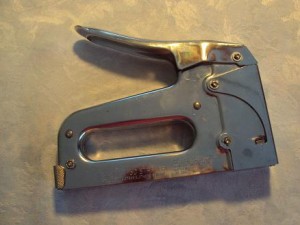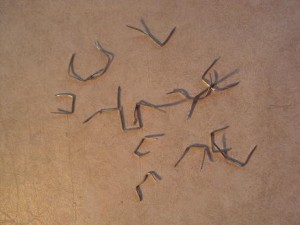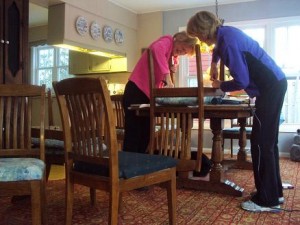Recently I drove to the Chicago area to visit my regular dentist. Actually there’s nothing regular about him, since he’s a specialist in root canals. Normal mouths don’t have a “regular” root canal man, and I’m not proud to say this procedure was my sixth.
 Admittedly, the process is less of an ordeal than it used to be in the ‘70’s with those pin-like screws being hand-turned into the nerve and then yanked out again and again. Today’s specialist labored behind magnifying goggles and worked on my tooth with power tools through the eye of a microscope.
Admittedly, the process is less of an ordeal than it used to be in the ‘70’s with those pin-like screws being hand-turned into the nerve and then yanked out again and again. Today’s specialist labored behind magnifying goggles and worked on my tooth with power tools through the eye of a microscope.
After 90 minutes of having had my mouth open, I was finally standing at the front desk with the doctor. “Here are two packets of quadruple strength ibuprofen. Take one right now. Also, I’m giving you a prescription for Vicodin, should you need it. And because we found so much infection, you’ll have to take antibiotics for a while.” He shook my hand and told me to have a nice afternoon.
I thought about my poor, battered tooth. A back molar, it had faithfully done its job without complaint until a couple of months ago when a dull ache started calling for my attention. When I didn’t respond, the ache grew worse and swelling started in the gums, along with occasional sharp pangs. While I was still thinking I hadn’t flossed well enough, an abscess had taken hold. And today the raw truth came out.
Nothing stays hidden forever. God says he’ll bring everything into the open one day, all of our secrets. Nothing escapes his notice, and eventually he’ll prove it to us by showing us (and others) what’s been going on “in the dark.” How goofy to think we could ever pull the wool over God’s eyes or sneak under his radar.
Just recently I learned a friend’s husband had taken up with a woman at his office. He’d kept the relationship under wraps until recently when, against his will, the truth came out, breaking my friend’s heart and destroying their marriage. He thought he could live with one foot in each world, keeping secrets from both women.
To live uprightly when no one’s watching is God’s challenge for all of us every day. Just as he saw my abscess hiding deep in my jaw in its early stages, he sees every choice we make and each action we take, even “in the dark.” For some, the consequences of revealed secrets may be so severe, they’ll long for the simplicity of 90 minutes with the root canal doctor.
“Woe to those who go to great depths to hide their plans from the Lord, who do their work in darkness and think, ‘Who sees us? Who will know’?” (Isaiah 29:15)





